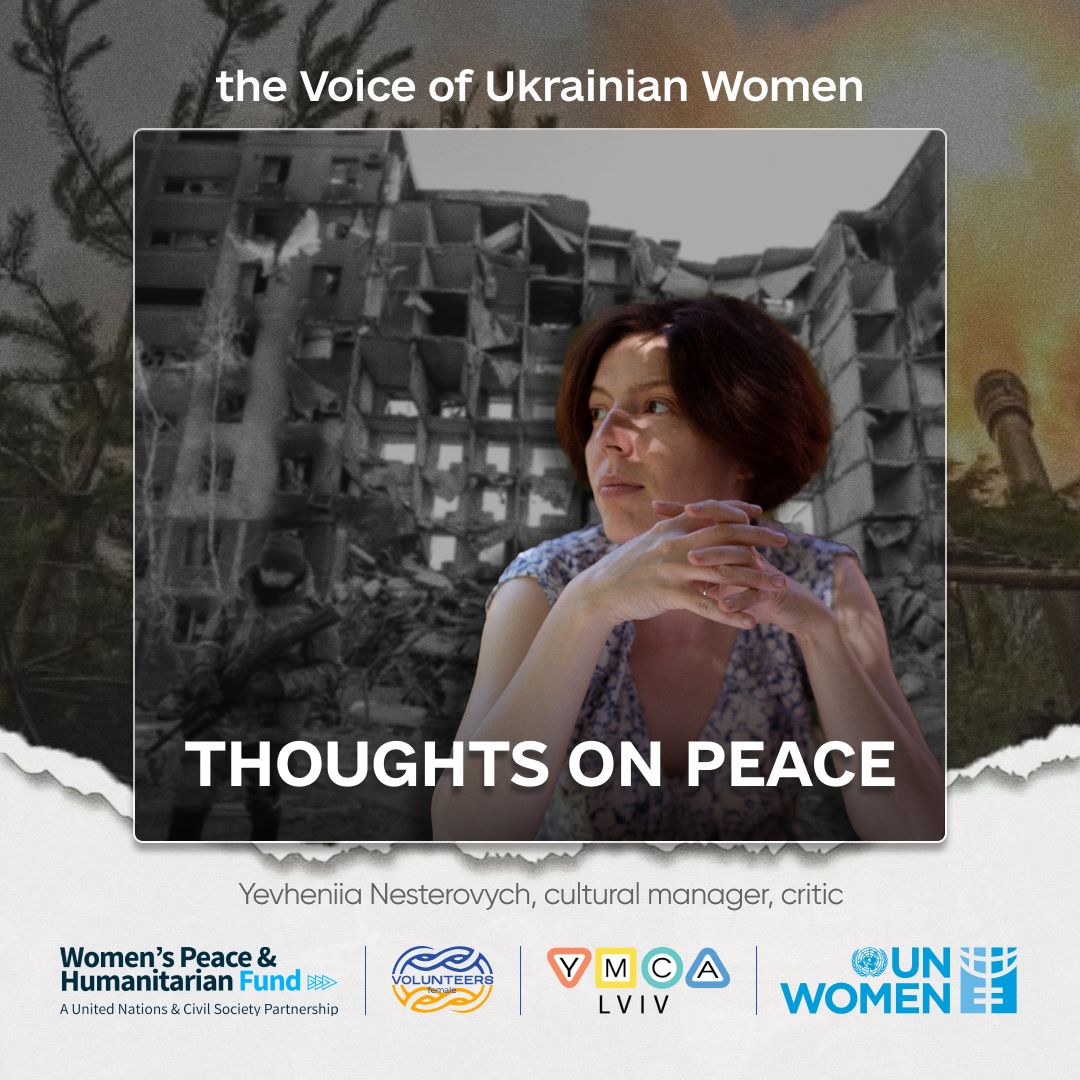Four generations of women in my family talk about peace
What is peace for us?
I asked my daughter, who is 6 years old. She said that peace will come when the russians “leave us alone.” And for this, in her opinion, we need to “finally defeat them”.
I asked my grandmother, who is 75. She said that peace will come when “there will be no shells exploding, no air raids, and Ukrainian soldiers will stop dying.”
I asked my mom, she is 54. My mom said that peace for her will come only after the “complete surrender of the enemy”.
I am 34. For me, peace will come when I stop being afraid that the war will take away those I love. Because the possibility of something happening to me no longer scares me. And this is probably not very healthy either.
But all of my classmates, friends, loved ones, just wonderful people that I have been lucky enough to know so much in my life – they are all crazy in their own way (in a good way!), and most of them are threatened.
There is no one left who hasn’t buried someone.
I should have met them at concerts, drunk beer on summer evenings by the river, argued about intellectual issues at work. We shouldn’t have seen each other more often at cemeteries than at festivals.
I’m taking my child to first grade, and I choose a school based on whether it has a shelter in case of bombing.
“When death is too close, basic concepts look a little different,” says a friend of mine who was on the front lines before this war was finally called a war.
“They look the same, it’s just that when they’re not threatened, you can’t even think that all this can be taken away from you so easily,” I answer.
I was named after my great-grandmother. She ran away to the front at the age of 17. She is a legendary woman and a role model in my family. My grandfather, her son-in-law, when I was interested in family history, liked to repeat, as if by the way: it’s good that your fate didn’t fall on the twenties or thirties. His father was 11 years old in 1933, and they lived above the Dnipro River in the Poltava region. I did not find my great-grandfather alive. My grandfather has also been dead for more than ten years.
Ukrainian women are very good at coping with life – the fusion of traditional culture and soviet ideology has left us badly wounded but phenomenally resilient. We know how to bring life back from the brink of death within the second generation, and I would like to see that no longer necessary. My daughter knows how to get her way without violence and just be herself because she still has that luxury. This is what was taken away from us each time, and instead a double standard was created, which led to tension, dissatisfaction, resentment, passive (and then active) aggression. Ukrainian men of the independence generation are made of a different stuff; it was no longer scary to have children with them. And now they are the ones most affected by the Great War.
And for me to believe in peace, the authoritarian empire that has been most proactive in killing here for centuries, taking food from the most generous, corrupting all institutions – and all its long tentacles, overt and covert mechanisms – must be uprooted and destroyed. Otherwise it will not be a victory. So that now, for real, it will never happen again.
Yevhenia Nesterovych, cultural manager, critic

The initiative is implemented within the framework of the project “Strengthening the capacity of the women’s network of volunteers in Lviv region” (#FemaleVolunteersLviv) with the technical support of UN Women Ukraine and funded by the UN Women’s Peace and Humanitarian Fund (WPHF).
The WPHF is a flexible and rapid funding instrument that supports quality interventions that increase the capacity of local women to prevent conflict, respond to crises and emergencies, and seize key peacebuilding opportunities.
* This publication has been prepared with the financial support of the United Nations Women’s Peace and Humanitarian Fund (WPHF), but the views and contents expressed herein are not necessarily those of the United Nations and are not officially endorsed or recognized by the United Nations.

